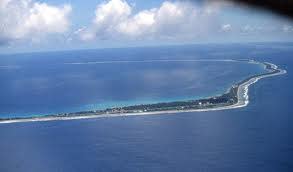Lack of Government Will, Useless Climate Debate and Loss of Biodiversity-by Naseem Sheikh
The United Nations has launched the Decade on Biodiversity with Secretary-General Ban Ki-moon urging humanity to live in harmony with nature and to preserve and properly manage its riches for the prosperity of current and future generations.
It is now widely recognized that climate change and biodiversity are interconnected. Biodiversity is affected by climate change, with negative consequences for human well-being, but biodiversity, through the ecosystem services it supports, also makes an important contribution to both climate-change mitigation and adaptation.
After extended negotiations in Durban , the 194 parties to the UN Framework Convention on Climate Change (UNFCCC) agreed on a package of decisions, known as the Durban Platform, which include the launch of a protocol or legal instrument that would apply to all members, a second commitment period for the existing Kyoto Protocol and the launch of the Green Climate Fund.
The 194 countries negotiating here also agreed that such a universal plan must be completed by 2015 at the latest. For the first time, all major nations-developed and developing-have agreed to a roadmap that would combat climate change reducing greenhouse gas emissions to control global warming that would not come into effect before 2020.
Secretary-General Ban Ki-moon welcomed last week the conclusion decision; he was gratified that countries reached decisions to implement the Cancun Agreements, which were created at last year's conference in Mexico. The new measures include setting up a Technology Mechanism that will promote access by developing countries to clean, low-carbon technologies, and establishing an Adaptation Committee that will coordinate adaptation activities on a global scale.
The European Union said the world's three nations that pollute the most are the biggest obstacles to setting a time line to a legally binding pact on global warming and that it won't "cave in" on its demands.
Currently, only industrial countries have legally binding emissions targets under the 1997 Kyoto Protocol. Although those commitments expire next year, they will be extended for another five years under the accord adopted - a key demand by developing countries seeking to preserve the only existing treaty regulating carbon emissions.
But environmentalists and representatives from smaller countries were underwhelmed by the deal, saying the urgency of the problem of climate change demanded a shorter time line for action. These people also said the deal could be easily ignored by major economies responsible for mass emissions.
The United States never signed the Kyoto treaty because it did not accept its division between developed and developing countries. Todd D. Stern, the chief American climate negotiator, said he was hopeful that talks in coming years would produce a more equitable arrangement




